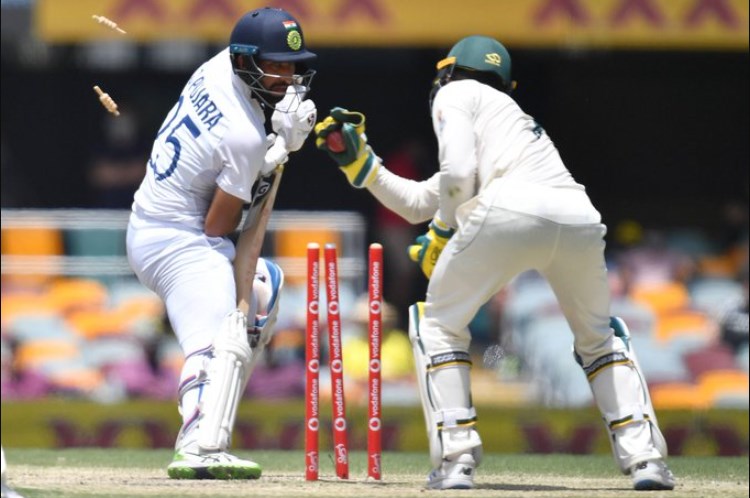The International Cricket Council (ICC) has implemented a significant modification to on-field umpire stumping referrals, addressing loopholes that were being exploited by fielding sides to conserve reviews. The alteration now specifically focuses on side-on replays for on-field umpire stumping reviews, excluding examinations of caught-behind scenarios.

Previously, a successful stumping appeal prompted the third umpire to assess the ultra edge for a caught-behind scenario if the batter involved was found clean in the stumping referral. This earlier mechanism allowed the fielding side to avoid using a Decision Review System (DRS) referral, leading to teams exploiting the flaw by making unnecessary stumpings appeals and ensuring reviews were initiated by the on-field umpires.
WATCH – Ravi Shastri’s Witty Commentary Highlights India’s Roller Coaster Day in Cape Town
The revised rule confines stumping reviews to solely check for stumped instances, preventing the fielding team from obtaining a free review for other modes of dismissal, such as caught behind, without opting for a player review, according to the ICC’s modification to stumping referrals as reported by Cricbuzz.
ICC announces new rule change, no caught behind check in stumping review for fielding sidehttps://t.co/w4g2aS00jz
— InsideSport (@InsideSportIND) January 3, 2024
There are also reports of a slight modification to the ruling concerning concussion replacements. The update specifies that a replacement player cannot bowl if the replaced player was suspended from bowling during the concussion incident.
The rule states, “(It) provides clarity in the regulations to ensure that a replacement player will not be permitted to bowl if the replaced player was suspended from bowling at the time of their concussion,” as reported by Cricbuzz.
ALSO READ: Aakash Chopra criticizes the pitch for 2nd IND vs SA Test
Furthermore, the third umpire’s responsibilities have expanded to include scrutiny of all forms of foot no-balls. While the third umpire was already tasked with checking the landing position of the bowler’s front foot, moving forward, they will also be responsible for examining the bowler’s back foot. If the back foot is found “touching the return crease appertaining to his/her stated mode of delivery,” the third umpire will signal for a no-ball.
